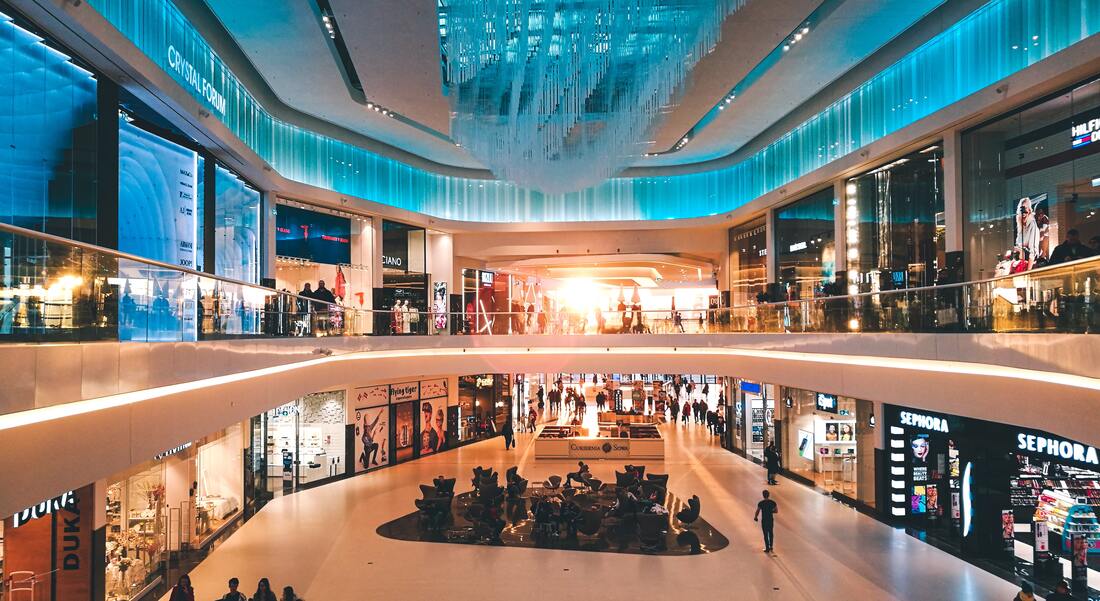|
By Andrew Martineau For an industry in a state of flux and shopping center developers and management companies putting more emphasis on the creation of experiences to counter the many sales lost to e-commerce, the Coronavirus is an unexpected and somewhat devastating new development to throw into the mix. Not only are fledgeling B and C malls struggling as it is, but the pandemic has also forced shopping centers to close doors until further notice. This development will force any mom-and-pop retailers who never developed an e-commerce business, with no means of revenue and the big box stores teetering on bankruptcy to look at this as the straw that broke the camel’s back. Furthermore, when will shoppers trust that it is ok to gather in groups of more than ten people and will they have any money - with the many people losing their jobs to do any shopping at all? With all the uncertainty in the air, many brands have stopped paying rent and haven’t ordered new product - and even if they wanted to order products, most factories in China have been closed down during China’s fight to stop the spread of the virus. It is no secret, that China manufactures a large amount of product for the world’s brands and independent retailers, and this shut down. However, temporary has caused some significant breakdowns in the supply chain with products not being manufactured and spotty travel, causing delays in shipments. When you think that the US accounts for more than 80% of toy imports from China, profitable brands like Hasbro and Mattel will see considerable losses, the longer the pandemic remains uncurable. Many global Original Equipment Manufacturers (OEM) have been quickly shifting orders to secondary or tertiary suppliers to make up the missed delivery from their primary suppliers and moving some core business priorities back to their factories. Some have looked into retooling their production systems to make completely different products. Automobile manufacturer Shanghai-GM-Wuling (SGMW) who quickly retooled its production system to produce medical face masks has generated rewarding revenues and positive reputation for the company. In China, some companies have charted buses and even airplanes to bring back workforce from remote regions to help with the backlog of orders halted as China works on mitigating the spread of the virus. Others have started to adopt automation to make up for labour shortages, and others are employing technology to train new employees quickly as there is a dire need for more hourly workers. Global supply chains are also looking into designing their supply chain models to include KPI’s for resilience, responsiveness, and reconfigurability. If China is rebuilding its global supply chain to be more resilient, flexible, and automated, so should the US. It is undoubtedly an excellent time to build a competitive, flexible and automated manufacturing industry here in the US to help shield from the possibilities of a pandemic like this shutting down the US economy in the future. All is not lost for every brick-and-mortar retailer though. Companies like Walmart and Target who buy products in mass quantities will see supply chain disruption like other retailers, but find increased revenue in the areas of grocery and disease-fighting essentials that consumers have been buying in mass quantities. This multi-category portfolio and evolved omnichannel operation should help balance the losses in other regions and prove valuable for them in their financial expectations for 2020. The lesson here is having a multi-category portfolio, and an evolved omnichannel operation is key to survival for anyone that has a brick-and-mortar location or has hopes of opening one. I have always been a believer that the luxury market is recession-proof, and the move by many shopping center developers to focus on the 1%, and adding more luxury retail to their flagship stores is a no brainer in a once-booming economy. With luxury spending by Chinese customers accounting for 33% of the global market, a slowdown in consumer purchasing in China, in addition to the cancelling of many of the world’s popular fashion weeks, the devastating effects on the global economy and the usually recession-proof luxury market is incredible. Not to mention the fact that luxury brands have had a history of strong sales in their brick-and-mortar locations as customers interested in purchasing a $20k Louis Vuitton bag don’t usually make that purchase online. Times like this is when innovative technologies tend to emerge. Still, the only thing I’ve seen is online small business lender Kabbage launching a platform that allows consumers to buy gift certificates to support local small businesses during the coronavirus crisis. Certificates purchased through Kabbage’s platform can be redeemed by consumers at any time. After each gift certificate purchase, Kabbage will hold up to 10% of the settlement funds in reserve until the gift certificate is redeemed. The only caveat is, if the small business does not survive, the gift certificate cannot be redeemed or refunded. And last but not least is the popularity and growth of delivery services, with many people forced to stay-at-home and trying their best to avoid going out for anything. This trend is certainly not going to disappear anytime soon as getting people to go back to brick-and-mortar stores is going to be an ambitious proposition, especially for non-essential items. I know I’ve been spending more time purchasing items on Amazon in the last couple of months than I have in my entire life.
0 Comments
|
AboutDisruption Retail is the official Thought Leadership platform for UniteUs Retail. Archives
May 2020
Categories |
|
Privacy Policy
Terms of Use Take down policy |
HoursM-F: 10am - 6pm
|
Telephone954-850-8581
|
© 2020 Disruption Retail - part of UniteUs Agency, a UniteUs Group Company. All rights reserved.


 RSS Feed
RSS Feed